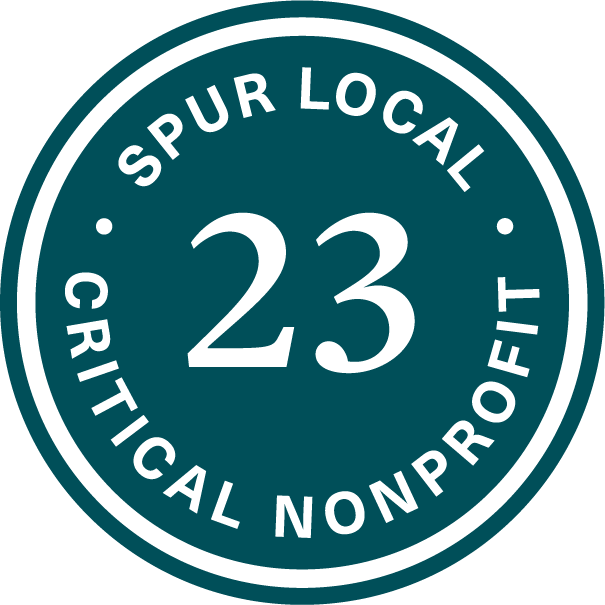Written by: Nea’la Prue
When it comes to talking about sex, it can be very sensitive and uncomfortable. Now just imagine talking to 6th your grade son or daughter about sex.
Imagine your 6th-grade daughter coming home and telling you that a seemingly random group of college student-athletes are coming into their P.E class once a week to teach them about sexual health. As that parent, you may not feel comfortable with perceived outsiders coming in to discuss a topic that makes adults, let alone youth, uncomfortable.
This is why Grassroots developed a new curriculum, Grassroots Fam, to work with the families of 6th-grade students because Grassroots realizes that families have the biggest influence on the lives of students. I have attended 4 Grassroots Fam programs at different schools and I have enjoyed every part of it.
Grassroots Fam is a two-part, family-friendly, curriculum held by staff and student-athletes of TGP at partner schools, where the parents or caregivers of the students interact with TGP staff and the student-athletes. During this program, the staff talks to parents about the rationale behind teaching youth about important health topics like HIV/STI prevention in 6th grade. While the parents and staff are discussing this, the middle-school students and their siblings hang out and build relations with the student-athletes in a separate room.
I talked to Isabel Rose, a rower at Georgetown University, to get a student-athlete’s point of view of Grassroots Fam and her experience with the program. According to Isabel, she “didn’t know what to expect” going into Fam but once she got there, she found that the parents were “a lot more engaged and excited to learn more about Grassroots.” This is a reflection that is shared by most athletes after they have attended Fam.
The first day of Grassroots Fam is focused on providing accurate information. Grassroots staff provide local health statistics to the parents or caregivers and explain what Grassroots athletes teach their students in class. The local health statistics are presented through an activity called “Fact or Nonsense.” Through this activity, the parents learn both facts and debunk common community myths around various sexual health topics. During this first session, parents start off by taking a sexual health pre-survey, much like the ones their students take at the beginning of the semester. The pre-survey gets parents warmed up for what they are about to learn. The pre-survey is followed by a post-survey on the second day, which the staff uses to compare how much knowledge parents have gained over the two sessions.
On the second day, it is time for roleplays! During role plays, student-athletes and parents act out various scenarios that relate to communication around sexual health issues. They act out a negative and a positive example of how to handle these situations. This gives the parents an example of their student’s perspective when they are caught in a similar situation. These scenarios also allow parents/caregiver to practice talking to their kids about the sensitive topics that deal with sexual health and share ideas from one another about the best way to bridge these uncomfortable subjects.
As a student-athlete being able to experience Fam and being apart of both sessions, Isabel believes “It was really interesting to see the interactions between the parents and the student-athletes.”The scenarios help “the students because their parents are much more knowledgeable to have conversations with them about sexual health, so that the parents can reinforce the knowledge.”
Because Grassroots is not focused on just one part of the DC community and involves different schools, there are “different variations of parents and depending on the school, different parents in different communities have different concerns,” attests Isabel. So parents at a school in Southeast have different concerns from the ones in Northeast. In my opinion, something that everybody can gain from this is that we can see how Fam has different impacts on the different parts of the community. Also, Fam helps TGP to learn more about the students in programs and therefore provide more whole-community oriented programming.
Isabel chose to be apart of Fam because it is “a chance to interact with the community in a different way than being in [school] programs. Isabel also likes this program because “being in the childcare part helps [her] build relationships,” which has helped with getting the students more involved during school programs.
Out of the four Grassroots Fams programs I have been to, I believe the one at Center City Trinidad was the best one. I was paired with a mom to act out a scenario about sexting. We had to prepare a negative and a positive way of how to handle the situation. When it came to acting out the negative way, we decided to show how a parent would act out of instinct if they just saw an inappropriate picture on their child’s phone. The parent may react with sudden anger and do things like punish their child and take their phone. But a more positive way to handle this situation may be the parent reasoning with their child. In this case, the mother I worked with used legal and social consequences to reason with the child and better explain the real world consequences that the child would face if the child was caught sexting. The mom I worked with gave an example where she told me to look up a couple of teens going to jail for sexting. This was important to me because when I looked at these two examples I thought about how parents just really want the best for their students but sometimes react negatively because they love their kids so much and do not want to make a parenting mistake.
Figure 1: The author, Nea’la Prue and a mom practicing their scenario.
Discussing issues like sexting can be hard between a parent and their 6th-grade student, but Grassroots Fam gives the parents an idea of how they can approach and handle the uncomfortable discussions. Through Fam, parents also understand the negative impact that these conversations – and when handled inappropriately – can have on kids this young. Hopefully, this will reinforce the messages being taught to students during the school programming and will continue to build communities with more open and honest communication around health.









